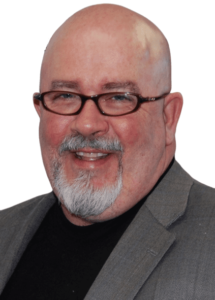Once again we are facing the horrific realities of mass shootings in our country. After recent tragedies in Dayton, El Paso, and Gilroy, the number of mass shootings since the start of 2019 rose to 255. The frequency and overwhelming carnage of these shootings puts us at a heightened risk for “normalizing” this behavior, and that number will continue to climb until we learn to trust our instincts and give voice to our concerns.
As a member of the mental health profession, I am tremendously disheartened by the recurrent reference to mental illness being the cause of this violence. It defies fact and reason, given that people with serious and persistent mental illness are far less violent than the average person. When looking for solutions for how to move beyond this new reality where the pace of mass shootings outnumbers the days we have crossed off on our calendars this year, we must resist the urge to simplify and point blame at an entire population or class of people as the cause of a more complex problem. Instead we need to thoughtfully examine what we know and take concerted action based on those facts. Here is what we know.
Childhood trauma cannot be left unsupported. There is a growing body of research that shows that the people committing these mass shootings are typically males who have experienced one or more significant adverse childhood experiences such as abuse, neglect or death of a parent. The traumas they have endured create profound emotional pain, mistrust and anger. Over time, their rage festers when it has no counterbalance. These people begin to look for validation and begin developing—what we in the business of behavioral health call—an anti-social identity—an internal reality that is defined by their feelings of injustice and outrage.
These feeling are then typically focused on someone or something that they believe represent the cause of their misery. This internal logic is usually drawn to like-minded individuals online or in the community who will validate and encourage their rage-fueled logic. Some individuals are then moved to act on their thoughts with a growing sense of justification for extreme violence. Over time this momentum transitions from “…if it’s going to happen” to “…when it’s going to happen.” Easy access to weapons of rapid and powerful destruction allows this accumulated rage to explode in devastating destruction.
This evolution does not happen in the shadows. Most of these violent individuals have expressed their views to family, friends, co-workers and anyone that will listen, accompanied by a long history of anti-social and violent tendencies that lay the foundation for greater violence in the future. Our lack of understanding of this process leads us to hope for the best, delaying any direct intervention that might disrupt this rageful momentum.
This is not mental illness, but rather pain. Accumulated mental anguish can create a view of the world that justifies extreme violence. There is no easy solution to this complexity, but there are actions that can make a difference. We must have a renewed investment addressing the impact of trauma and emotional isolation and disconnection in our communities. Each of us must also take responsibility for the level of hate we perpetuate in our lives, including how we “normalize” extreme violence in the media, online and in our entertainment. Accessibility to firearms is statistically related to high rates of suicide and homicide. Firearms may not cause gun violence, but high capacity firearms clearly allow it to occur with extreme devastation.
We must learn to trust our instincts and give voice to our concerns. Action we can all take is increased compassion balanced by accountability. When we see a person who is hurting, we should look them in the eye. That simple act can let them know that we see them and that they are not alone. Many times a person suffering from a life of pain needs to simply know that someone cares. The degree of indifference and rejection we offer in the face of their pain only adds to the narrative of injustice and outrage that, for some, justifies violence. Similarly, when we witness a person express thoughts and threats of extreme violence, we must take it seriously. Trust your gut and report extreme rhetoric to the authorities.
Policies need to change, but ultimately it is within our own lives that the greatest change must occur.
 Michael Mitchell, LCSW is the former CEO of Crisis & Counseling Centers based in Augusta, Maine. He has been a practicing clinical social worker for over thirty years in a wide range of settings including private practice, community mental health, and senior administration. He is experienced in the areas of childhood bi-polar disorder, trauma recovery, criminal justice treatment and crisis intervention.
Michael Mitchell, LCSW is the former CEO of Crisis & Counseling Centers based in Augusta, Maine. He has been a practicing clinical social worker for over thirty years in a wide range of settings including private practice, community mental health, and senior administration. He is experienced in the areas of childhood bi-polar disorder, trauma recovery, criminal justice treatment and crisis intervention.
